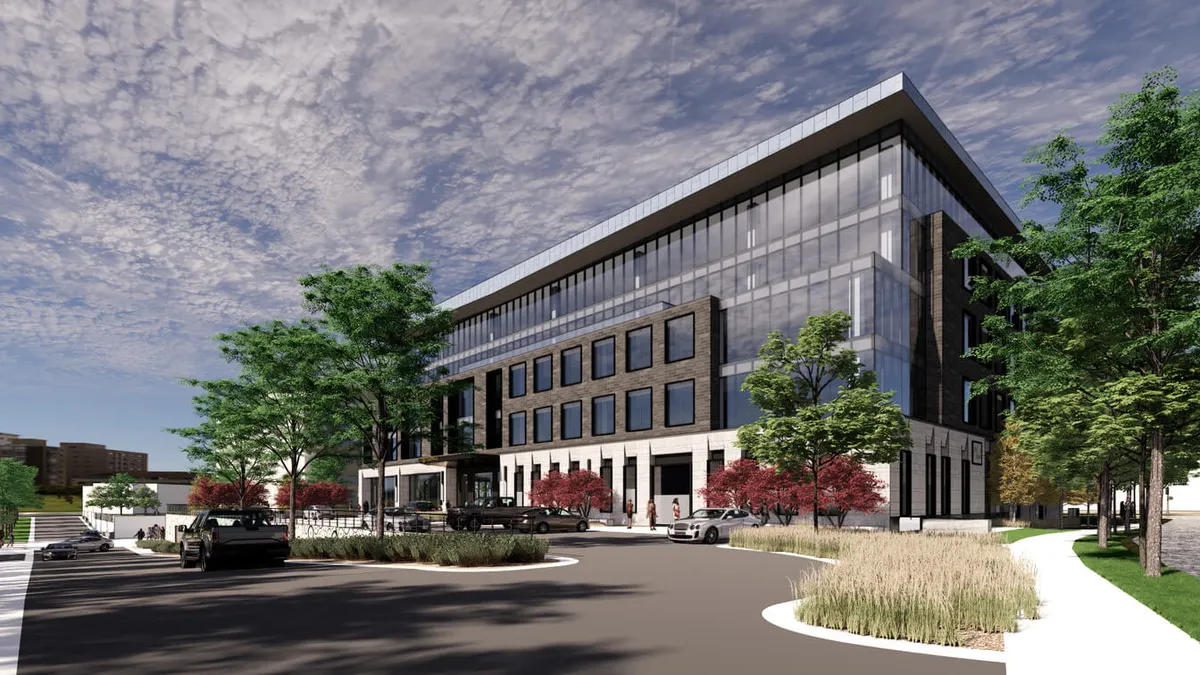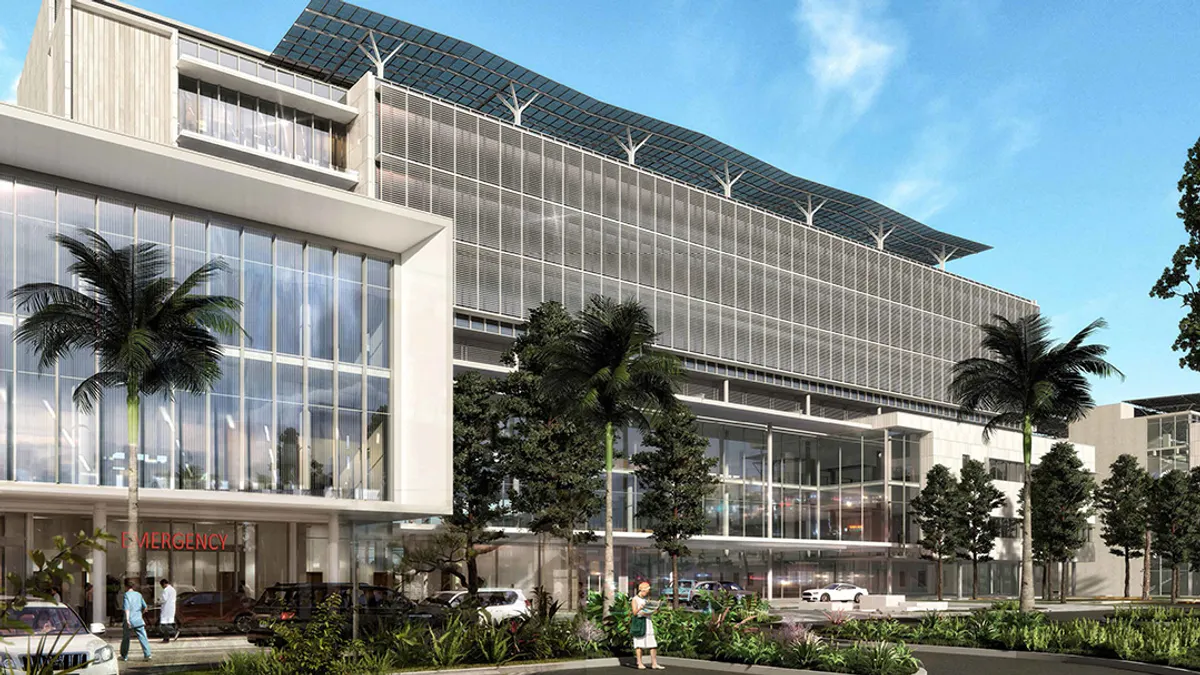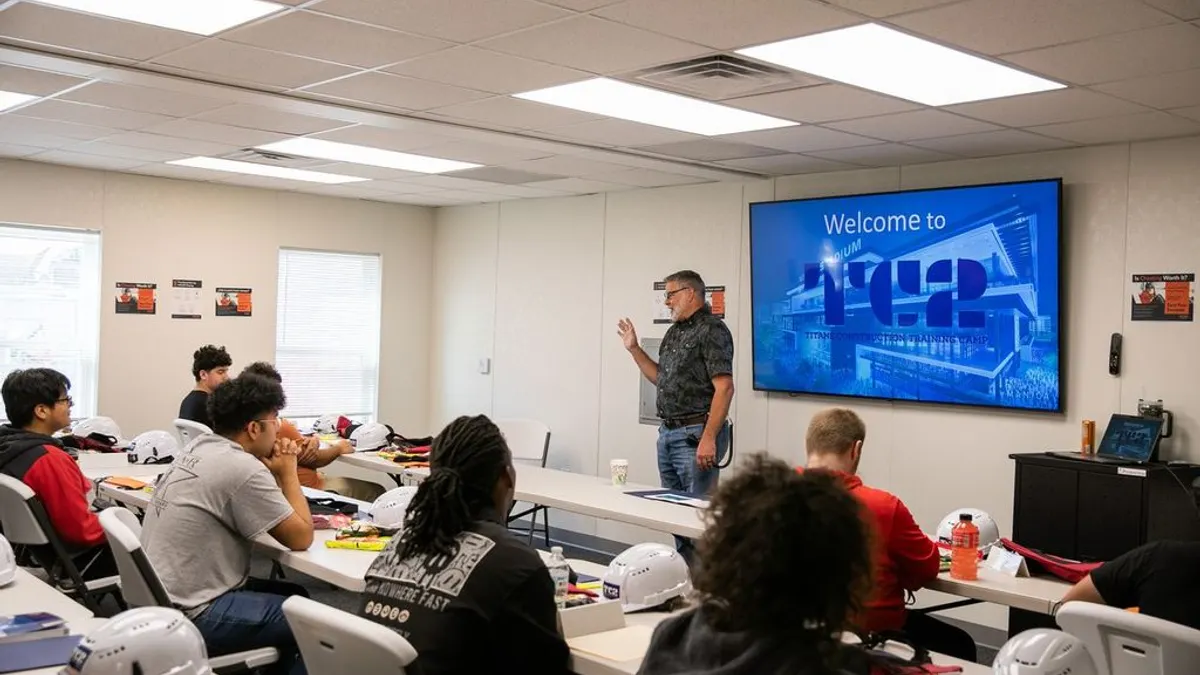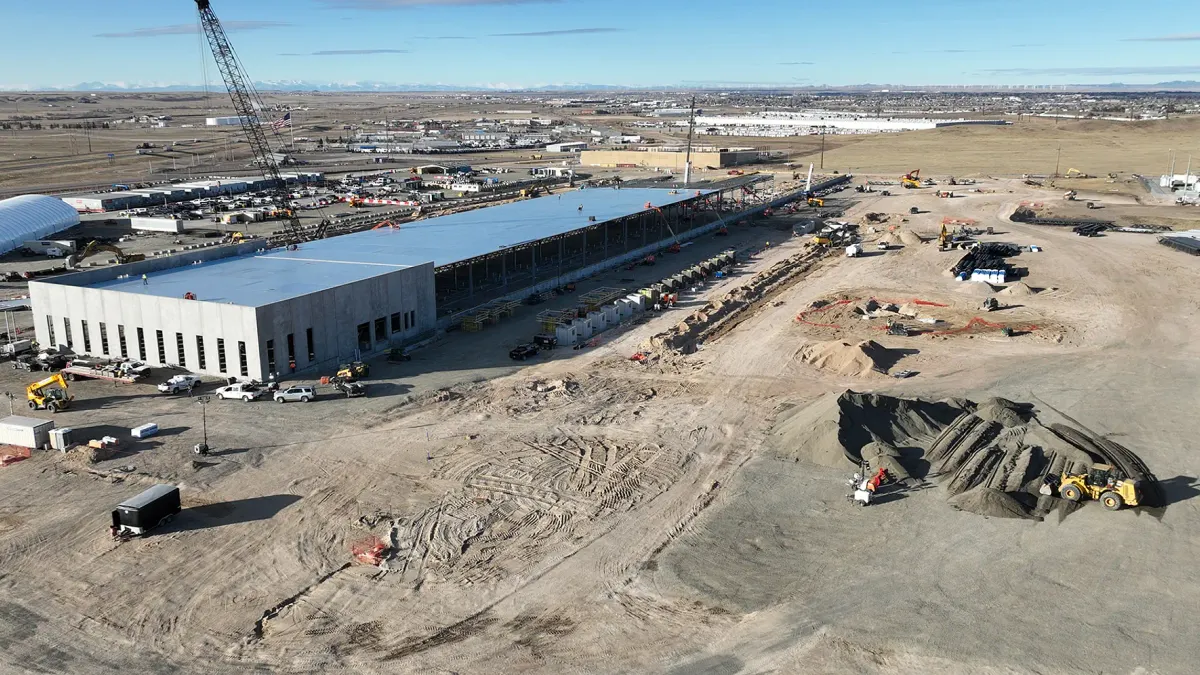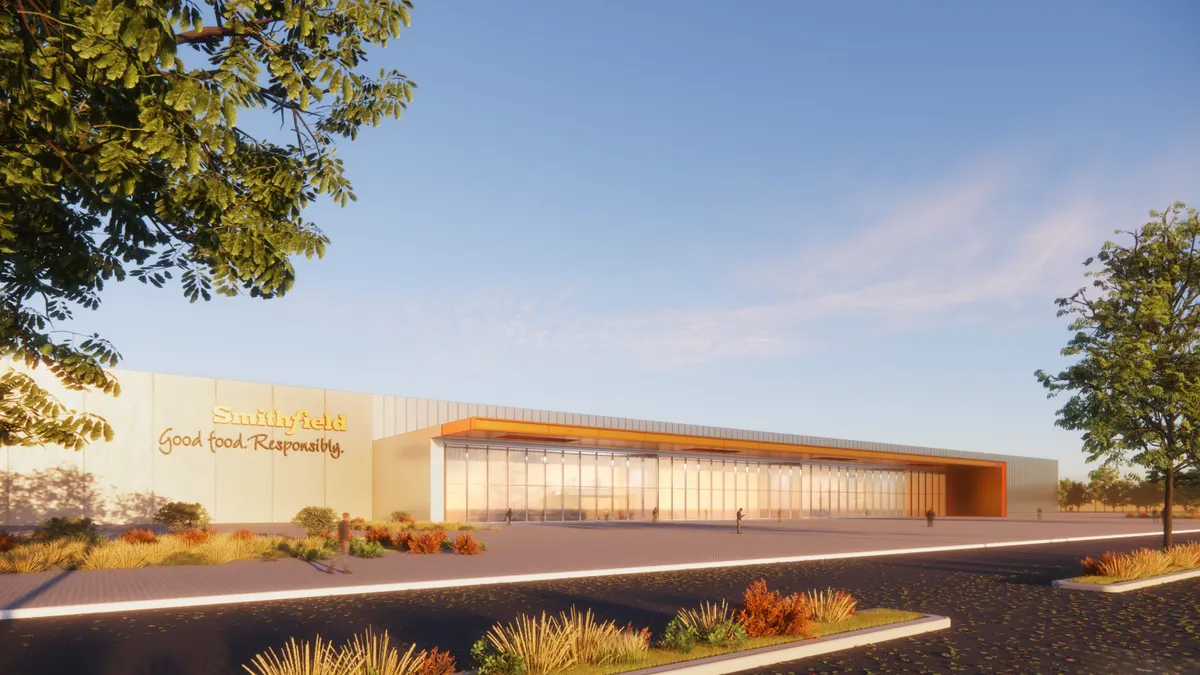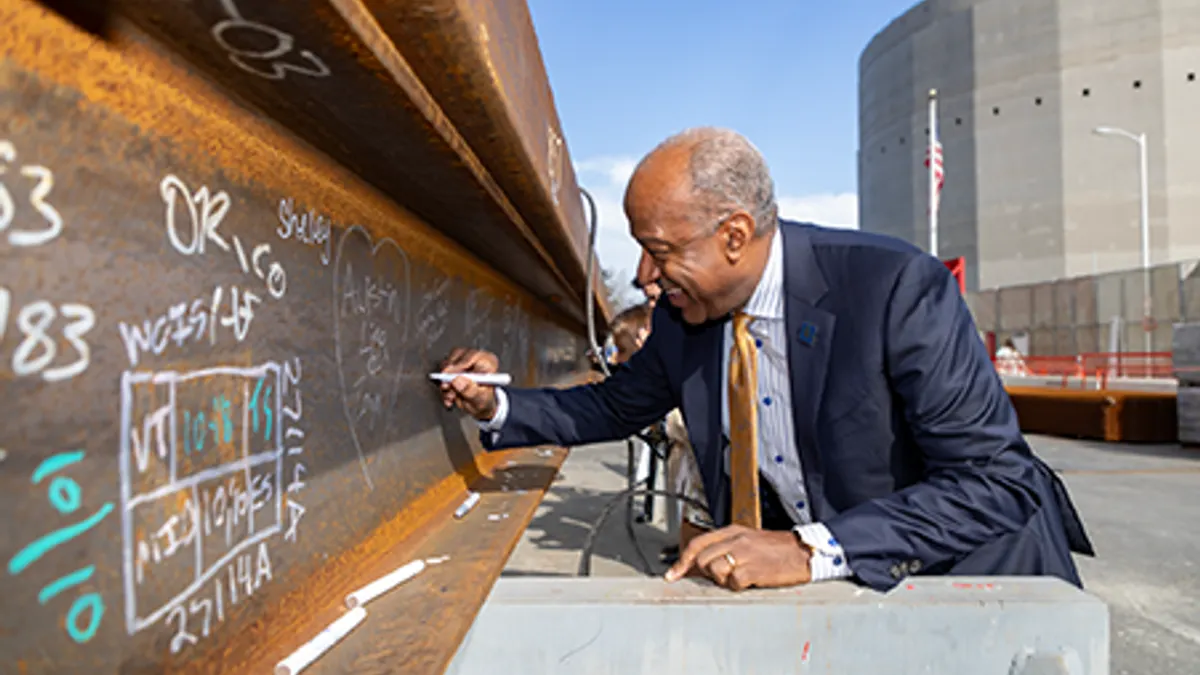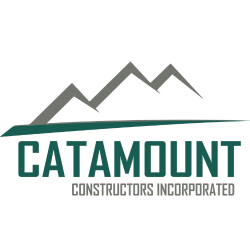WSP announced a $1 billion, seven-year partnership with Microsoft at the beginning of 2025 to accelerate the digitization of the architecture, engineering and construction industry via artificial intelligence. That alliance is now paying off, CEO Alexandre L'Heureux said on a second-quarter earnings call Aug. 7.
“In our bidding group … we believe that very soon we will be able to reduce some of our human output by close to 80%,” L’Heureux said. “So that's not de minimis, because we have bidding groups across each and every segment and across each and every country. So that's an example of where we feel we can make a tremendous improvement and reduce human intervention.”
It’s not just AI creating those results, though: In the past decade, the Montreal-based construction giant’s revenue per employee has seen constant growth while labor became cheaper, according to L’Heureux.
“Our revenue at the moment is growing much faster than our headcount,” L’Heureux said. “That's why today, unlike perhaps five, six, seven years ago, I am not talking as much about headcount as we used to. To me, it's becoming more irrelevant.”
Although the market is still “very, very dynamic,” WSP has not seen much election-related disruption amid recent or upcoming votes in major markets including New Zealand, the U.K., Australia, Canada and the U.S., according to L'Heureux.
Even with regime change in the U.S. and U.K., infrastructure spending remains a top priority for both of those countries, L’Heureux said. Although President Donald Trump’s administration has brought some shifts in priorities — for instance, away from renewables and towards fossil fuels — he aims to facilitate and expedite investment.
Projects and sectors
Data centers and related projects remain hot, with “robust activity across all of our geographies,” according to L’Heureux.
“Mandates encompass site acquisition, due diligence, master planning for new AI factories, greenfield data center design projects, brownfield data center upgrades and the growing power and water infrastructure demand,” L’Heureux said.
WSP has also seen “tremendous growth in power generation,” L’Heureux said, citing thermal and nuclear energy in particular. To that end, Power Engineers, the Hailey, Idaho-based engineering and environmental consulting firm it purchased in August 2024, had an organic growth rate of 16% this quarter.
“It was a must-do deal, and I'm extremely pleased that we completed this acquisition. It's very, very strategic for our platform,” L’Heureux said. “I'm feeling very bullish on this acquisition and very bullish around this [power generation] sector.”
Water continues to benefit from investment across most of WSP’s geographies, L’Heureux said. The firm recently secured a role in an Ontario wastewater treatment plant expansion, as well as a major PFAS project for the U.S. Air Force in the Midwest that “shows our strong position in the combined defense and water markets,” according to L’Heureux.
Despite the Trump administration’s reversal of environmental projects and protections, WSP’s environmental backlog has continued to grow, even in the U.S., L’Heureux said. In particular, WSP’s biodiversity and marine expertise are in high demand in Canada.
The transportation infrastructure sector, including rail, continued to perform well, per L’Heureux. WSP won a role in the $3.9 billion Hampton Roads Bridge-Tunnel project in Virginia, as well as in the new terminal of Perth International Airport in Australia.
By the numbers
WSP reported revenues of $4.5 billion Canadian dollars ($3.3 billion) in its second quarter earnings, up 14.6% from CA$3.9 billion in Q2 2024. The firm’s profits grew to CA$279 million in Q2 2025, up nearly 52% from the same period last year.
Backlog stood at CA$16.3 billion, a 10.9% increase from Q2 2024.
That was due mostly to continued strong performance in Canada, the Americas and Europe, Middle East, India and Africa, according to WSP CFO Alain Michaud, and to the fact that WSP reduced its presence in the Asia-Pacific region in the first half of the year after its performance slowed.
“Clients are recognizing the expertise that we bring to the table,” L’Heureux said. “It allows us to be more selective in the projects that we undertake, but it also allows us to charge for the great work that our engineers are doing.”
More M&A
Although L’Heureux noted last quarter that election-related uncertainty was dampening the M&A market, he said his firm is continuing to pursue merger and acquisition opportunities.
In June WSP acquired Lexica, a U.K.-headquartered consulting firm specializing in healthcare and life sciences, which adds 90 experts to the firm’s Planning, Property and Advisory business in the region and forms a new Healthcare and Life Sciences Advisory team.
WSP also announced an agreement in June to purchase the U.K.-based consultancy Ricardo, which delivers strategic advisory and engineering solutions that intersect the global transport, energy and environment agenda.





